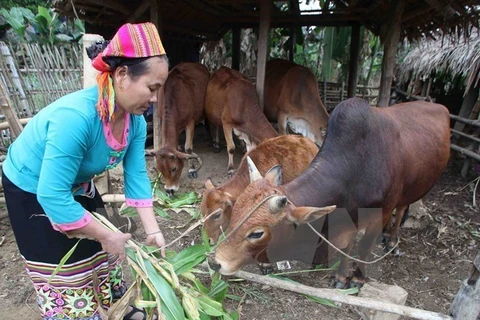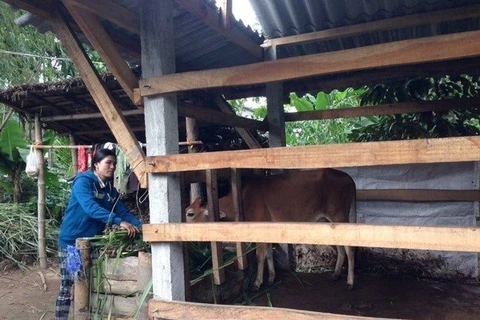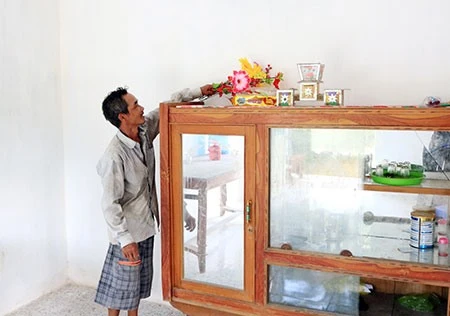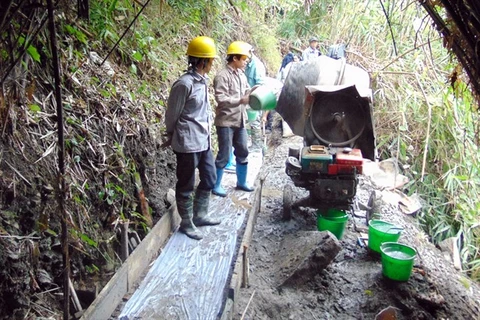Hanoi (VNA) – Prime Minister Nguyen Xuan Phuc has recently approved a project on assisting hamlets and villages in border, mountainous, coastal, and island areas with new-style rural area building and sustainable poverty reduction for the 2018-2020 period.
Specifically, the country will strive to have all communes meet at least five criteria on new-style rural areas. The rate of poor households is to be reduced by at least five percent under the multi-dimensional poverty reduction standards for the 2016-2020 period.
By 2020, the income of local residents in communes under the project is estimated to expand by 1.6-1.8 times compared to the figures in 2015.
Hamlets and villages have set goals of establishing either effective manufacturing and trade or community-based tourism-cultural village models, as well as basically fulfilling the construction of key infrastructure for daily use such as water and power supply facilities and rural roads. At least half of the hamlets and villages in the project are expected to meet the new-style rural area building criteria adopted by the provincial People’s Committees.
The project will benefit 3,513 hamlets and villages in 363 poor communes that currently meet less than 10 of the set criteria across 36 provinces, including 564 hamlets and villages in 52 communes that meet below five of the set criteria.
It will help build and spread concentrated manufacturing models in line with the “One Commune, One Product” programme; develop community-based cultural and tourism village models; offer training courses on community development to rural development committees and prestigious persons in communities, as well as vocational training to rural workers; and build and upgrade key infrastructure for manufacturing and daily use.–VNA
Specifically, the country will strive to have all communes meet at least five criteria on new-style rural areas. The rate of poor households is to be reduced by at least five percent under the multi-dimensional poverty reduction standards for the 2016-2020 period.
By 2020, the income of local residents in communes under the project is estimated to expand by 1.6-1.8 times compared to the figures in 2015.
Hamlets and villages have set goals of establishing either effective manufacturing and trade or community-based tourism-cultural village models, as well as basically fulfilling the construction of key infrastructure for daily use such as water and power supply facilities and rural roads. At least half of the hamlets and villages in the project are expected to meet the new-style rural area building criteria adopted by the provincial People’s Committees.
The project will benefit 3,513 hamlets and villages in 363 poor communes that currently meet less than 10 of the set criteria across 36 provinces, including 564 hamlets and villages in 52 communes that meet below five of the set criteria.
It will help build and spread concentrated manufacturing models in line with the “One Commune, One Product” programme; develop community-based cultural and tourism village models; offer training courses on community development to rural development committees and prestigious persons in communities, as well as vocational training to rural workers; and build and upgrade key infrastructure for manufacturing and daily use.–VNA
VNA
























